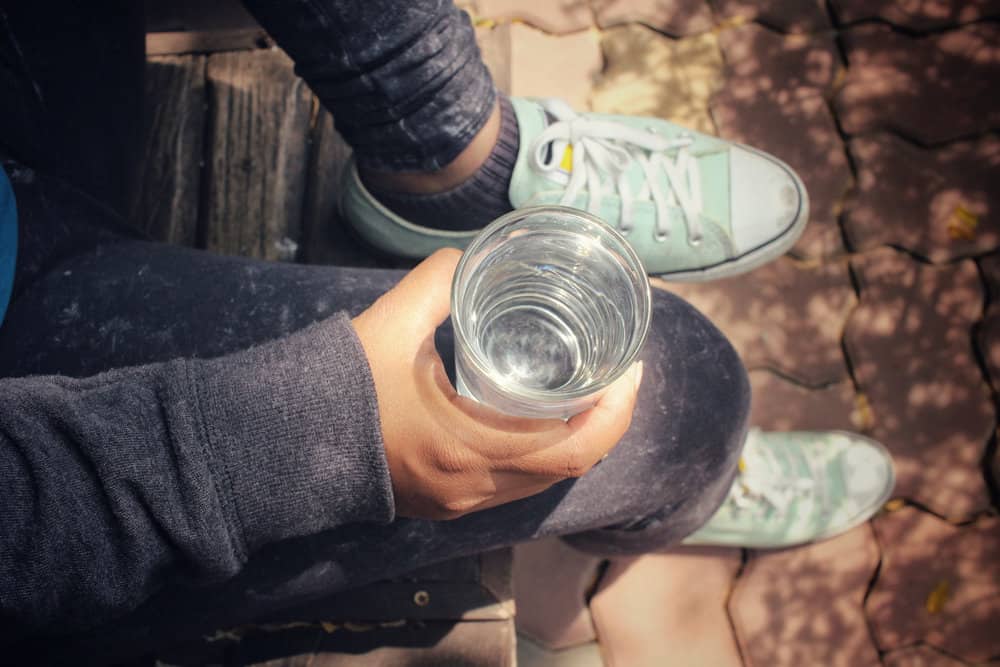
As the summer heat intensifies, staying hydrated becomes even more crucial for our health and well-being. While we are often reminded to drink enough water to avoid dehydration, it’s essential to strike a balance. Overhydration, or excessive water intake, is a rare condition that can lead to hyponatremia, a condition that poses a risk to our health.
Overhydration occurs when the body retains more water than it can effectively eliminate. It can be caused by excessive water consumption, certain medical conditions, or the misuse of medications. This condition disrupts the balance of electrolytes, particularly sodium, in the body, leading to hyponatremia.
Overhydration occurs when the body retains more water than it can effectively eliminate. It can be caused by excessive water consumption, certain medical conditions, or the misuse of medications. This condition disrupts the balance of electrolytes, particularly sodium, in the body, leading to hyponatremia.
The Risks of Overhydration:
Hyponatremia: Excessive water intake dilutes the sodium concentration in the blood, causing hyponatremia. Sodium plays a vital role in maintaining proper nerve and muscle function, as well as regulating fluid levels. When sodium levels drop, cells in the body can swell, leading to symptoms such as nausea, headache, confusion, seizures, and, in severe cases, coma or even death.
Dilution of Electrolytes: Overhydration can lead to an imbalance of electrolytes, such as sodium, potassium, and chloride. These electrolytes play a crucial role in nerve and muscle function, as well as fluid balance regulation. Imbalances can affect various bodily functions and potentially lead to health complications.
Kidney Problems: The kidneys play a crucial role in maintaining fluid balance in the body. Excessive water intake can put a strain on the kidneys, potentially leading to decreased kidney function or even kidney damage.
Digestive Disturbances: Overhydration can disrupt the normal digestive process, leading to symptoms like bloating, nausea, and diarrhea.
Dilution of Electrolytes: Overhydration can lead to an imbalance of electrolytes, such as sodium, potassium, and chloride. These electrolytes play a crucial role in nerve and muscle function, as well as fluid balance regulation. Imbalances can affect various bodily functions and potentially lead to health complications.
Kidney Problems: The kidneys play a crucial role in maintaining fluid balance in the body. Excessive water intake can put a strain on the kidneys, potentially leading to decreased kidney function or even kidney damage.
Digestive Disturbances: Overhydration can disrupt the normal digestive process, leading to symptoms like bloating, nausea, and diarrhea.
How to Maintain a Healthy Hydration Balance in Summer
Know your fluid needs: Understand that your fluid requirements may increase during the summer due to higher temperatures and increased physical activity. Pay attention to your body’s thirst signals and drink water accordingly.
Balance water intake with electrolytes: When engaging in prolonged physical activities or exercising in hot conditions, it’s important to replenish both water and electrolytes lost through sweat. Consider consuming sports drinks or incorporating electrolyte-rich foods like fruits, vegetables, and nuts into your diet.
Monitor hydration levels: Keep track of your fluid intake and urine color to gauge your hydration status. Clear or light yellow urine generally indicates adequate hydration, while dark-colored urine may indicate dehydration.
Hydrate mindfully during outdoor activities: If you’re participating in outdoor events or sports, drink fluids at regular intervals, but avoid excessive water consumption. Sip water slowly and take breaks as needed. It’s better to maintain a consistent intake rather than gulping down large quantities all at once.
Seek professional advice: If you have underlying health conditions or take medications that impact fluid balance, consult with your healthcare provider to determine the appropriate fluid intake for your specific needs. They can offer tailored advice to help you stay hydrated safely.
Remember to be mindful of your activities, listen to your body, and seek professional help when necessary. It’s much more likely that you could become dehydrated rather than overhydrated, so don’t fear drinking water since staying properly hydrated is vital to overall health.
Balance water intake with electrolytes: When engaging in prolonged physical activities or exercising in hot conditions, it’s important to replenish both water and electrolytes lost through sweat. Consider consuming sports drinks or incorporating electrolyte-rich foods like fruits, vegetables, and nuts into your diet.
Monitor hydration levels: Keep track of your fluid intake and urine color to gauge your hydration status. Clear or light yellow urine generally indicates adequate hydration, while dark-colored urine may indicate dehydration.
Hydrate mindfully during outdoor activities: If you’re participating in outdoor events or sports, drink fluids at regular intervals, but avoid excessive water consumption. Sip water slowly and take breaks as needed. It’s better to maintain a consistent intake rather than gulping down large quantities all at once.
Seek professional advice: If you have underlying health conditions or take medications that impact fluid balance, consult with your healthcare provider to determine the appropriate fluid intake for your specific needs. They can offer tailored advice to help you stay hydrated safely.
Remember to be mindful of your activities, listen to your body, and seek professional help when necessary. It’s much more likely that you could become dehydrated rather than overhydrated, so don’t fear drinking water since staying properly hydrated is vital to overall health.
Sources & More Information
HH Patel, M. Pharm “Overhydration/Hyponatremia” https://www.news-medical.net/health/Overhydration-Hyponatremia.aspx
Medical News Today, “What happens if you drink too much water?” https://www.medicalnewstoday.com/articles/318619
Watson, Stephanie, “Overhydration” https://www.healthline.com/health/overhydration

